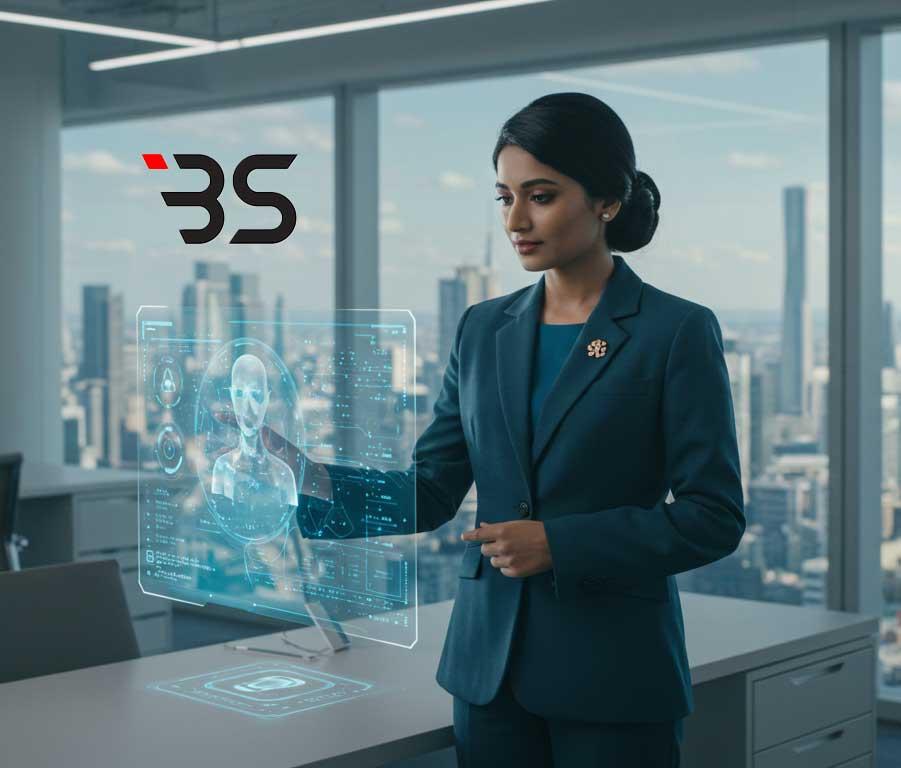Brijesh Shukla
Brijesh Shukla (Mr. Brilliant) AI - Artificial Intelliigence

Artificial Intelligence (AI) is no longer a futuristic concept—it’s already reshaping industries, economies, and daily life. From self-driving cars to AI-powered healthcare diagnostics, the technology is advancing at an unprecedented pace. But what does the future hold for AI? Will it bring revolutionary benefits, or do we need to prepare for ethical and societal challenges?
We’re exploring:
✔ The current state of AI and its rapid evolution
✔ Key industries AI will disrupt next
✔ Ethical concerns and the need for regulation
✔ How businesses and individuals can prepare for an AI-driven future
AI has already made significant strides in:
Natural Language Processing (NLP) – ChatGPT, Gemini, and other AI chatbots can now hold human-like conversations.
Computer Vision – Facial recognition, medical imaging, and autonomous vehicles rely on AI-powered vision systems.
Predictive Analytics – Businesses use AI to forecast trends, optimize supply chains, and personalize marketing.
Robotics & Automation – Factories, warehouses, and even restaurants are adopting AI-driven robots.
With advancements in quantum computing, generative AI, and neural networks, AI is becoming more powerful—and more integrated into our lives.
AI-assisted diagnostics (detecting diseases like cancer earlier)
Personalized medicine (tailored treatment plans based on genetics)
Robot-assisted surgeries (higher precision, fewer errors)
Fraud detection (real-time AI monitoring of transactions)
Algorithmic trading (AI-driven stock market predictions)
Personalized financial advice (robo-advisors for investments)
Self-driving cars & trucks (Tesla, Waymo, and autonomous delivery vehicles)
Smart traffic management (AI reducing congestion in cities)
Drone deliveries (Amazon, Walmart experimenting with AI-powered drones)
AI tutors (personalized learning for students)
Automated grading & feedback (freeing up teachers’ time)
Virtual classrooms (AI-powered immersive learning experiences)
While AI offers immense potential, it also raises critical concerns:
Job Displacement – Will AI replace human workers in many fields?
Bias & Discrimination – AI systems can inherit biases from training data.
Privacy Risks – Mass surveillance and data misuse are growing concerns.
AI Misinformation – Deepfakes and AI-generated fake news threaten trust.
Governments and organizations are working on AI ethics frameworks (like the EU’s AI Act) to ensure responsible development.
✅ Invest in AI training for employees
✅ Implement AI tools for efficiency (chatbots, automation, analytics)
✅ Stay updated on AI regulations
✅ Learn AI skills (coding, data science, prompt engineering)
✅ Adapt to AI-assisted workplaces
✅ Stay informed about AI’s societal impact
AI is not just a tool—it’s a transformative force that will redefine how we live and work. The future of AI holds incredible possibilities, but it also demands responsible innovation, ethical guidelines, and continuous learning to harness its full potential.
What’s your take on AI’s future? Will it be a force for good, or do we need stricter controls? Share your thoughts in the comments!
#ArtificialIntelligence #FutureOfAI #TechTrends #MachineLearning #DigitalTransformation #Innovation
Your email address will not be published. Required fields are marked *